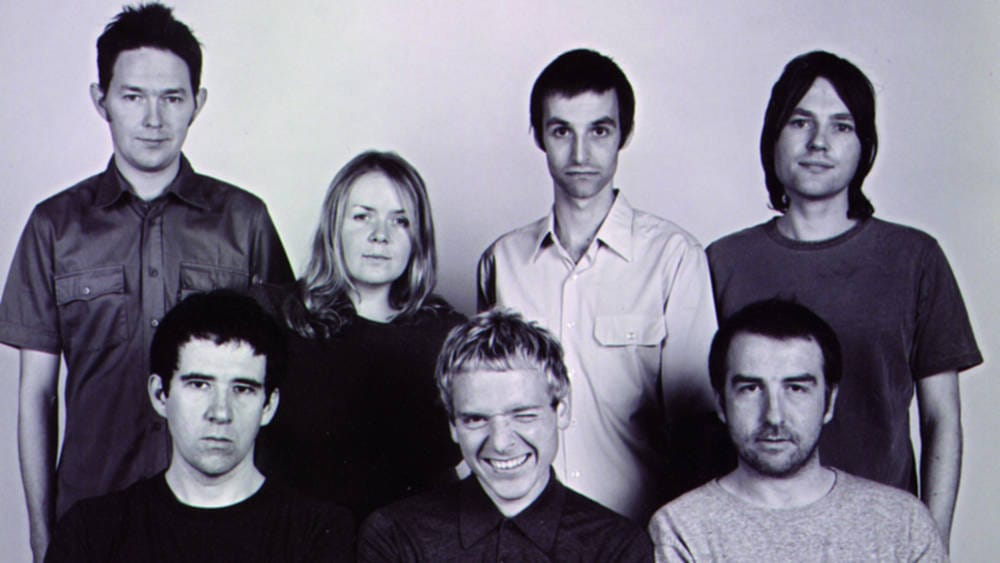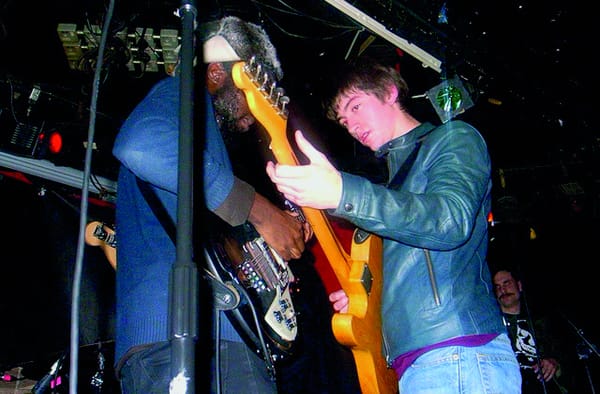Girls in Peacetime not as twee as it sounds
Philip Kent reviews the latest offering from Belle & Sebastian

Twee is a word often used to describe Stuart Murdoch’s indie band, whose ninth album Girls in Peacetime Want to Dance was released on Matador on 19th January. However having listened to the album a number of times since it was released one is immediately forced to consider whether this label still holds true.
Belle & Sebastian has developed significantly since 1999’s Tigermilk, the most startling change being in 2010’s _Write About Love _where the emotional and sombre ballads of their earlier works were lost. That album marked a turning point for the band as it became more electronic, more upbeat, and more happy; yet felt unfinished as if the band did not know where it was going.
Many critics have cited this as a ‘reinvention’ of the band – I disagree. Whilst this new album places a heavy focus on love and relationships (like practically all their other works), the stories told in the lyrics feel more mature and question the world we are in, rather than who we are.
Throwing in the political anger prevalent in a number of the tracks, and combined with the direction taken by Write About Love, it becomes apparent that the band is growing up, moving from the adolescent nature of their earlier releases to stories about the lives of twentysomethings.
This is by no means a criticism. Whilst the enjoyment of the band’s older works is unaffected by their recent dramatic direction change, the listener can observe vastly different emotions behind the storylines in what is presented to them today versus (for example) the band’s outstanding If You’re Feeling Sinister.
The album feels far more approachable than Belle and Sebastian’s earlier releases, and this is likely thanks to the much wider range of musical influences present in the tracks.Gospel makes a welcome appearance in ‘Nobody’s Empire’, and a strong theme of dance runs through the album. Artists such as Metronomy, Orchestral Manoeuvres In The Dark and New Order come to mind through slight similarities in the music.
The band did put out three singles prior to the January release – ‘The Party Line’, ‘Nobody’s Empire’, and ‘The Cat With the Cream’ – all songs that lend far more closely to Belle & Sebastian albums of old than this new album as a whole. Because of this I reach the only criticism I feel appropriate – it does not flow, a startling disappointment considering how well constructed earlier releases are.
Ultimately, this does not take away from the absolute pleasure of listening to Girls in Peacetime Want to Dance. Murdoch again demonstrates his excellent ability to craft lyrical poetry, and the score – whilst less cinematic than earlier works – emotionally moves you in the way people have come to expect from the Glaswegian band.
Yet, the album sounds confident in a way Belle & Sebastian has never been able to manage before, and for this fact they must be congratulated. Girls in Peacetime Want to Dance is well worth a listen and an outstanding achievement for the band. If you have tried Belle and Sebastian before and have found them a bit too “twee” or insular for your liking, try again; you may just like their newly found voice.
_Girls in Peacetime Want to Dance _is out now on Matador records.










